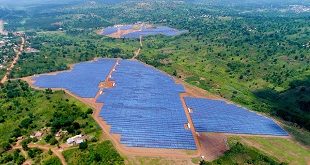
The government has helped women start small businesses but more female entrepreneurs need to move into larger business space to drive economic recovery and industrial transition
Kampala, Uganda | ISAAC KHISA | Uganda’s economic recovery will be faster, stronger, and more sustainable if it brings more women into the center of profitable economic activity, according to the 18th edition of the Uganda Economic Update (UEU).
Uganda Economic Update: Putting Women at the Center of Uganda’s Economic Revival, which projects the country’s economic growth to be between 3.5% and 4.0% in FY22 and about 5.5% in FY23, also delves into a special topic on women’s economic empowerment, with an emphasis on putting women at the center of Uganda’s economic revival.
Uganda continues to face gender inequality in economic empowerment and economic outcomes, despite closing gender gaps in rates of labor force participation and entrepreneurial activity. Women earn less than men, and according to the UEU, increasing women’s earnings to match men’s would boost national wealth by 11.8% (US $1,619 per capita).
The COVID-19 pandemic expanded gender gaps in paid work and business ownership, and the 2020 lockdown set off a wave of work stoppages and business closures that affected women more than men, while job losses and school closures have resulted in a greater share of unpaid care work for women, who already shoulder a disproportionate amount of household responsibilities.
While the Government of Uganda has successfully helped women start small businesses through initiatives such as the Uganda Women Entrepreneurship Program, more female entrepreneurs need to move into the larger business space to drive Uganda’s economic recovery and industrial transition.
To measurably close gender gaps in economic empowerment and economic outcomes, policy actions in three key areas will be critical: Help meet women entrepreneurs’ demand to lead growth-oriented enterprises, address women’s time poverty so that they can complete their education, acquire marketable skills, and work for pay outside the household and that the government policies and programs need to better consider the diversity of skills and strengths that women bring to the economy.
The benefits of investing in women’s marketable job skills and growth-oriented entrepreneurship will accrue not only to women, but to their households and, by extension, the whole of Ugandan society.
The Uganda Economic Update also reveals that even before the COVID-19 shock, Uganda already had lost an estimated US $61 billion due to gender inequality. In addition, not investing in women deprives households and the economy of the contributions they would make and slows its transition out of agriculture.
This comes as feminist lawyers urge the East African Community partner states to come up with legal framework that will see stay at home spouses who are women are compensated for the unpaid works in their families.
This follows a Nakuru High Court ruling on Sept.24 which held that housework and care work performed by stay at home spouses are entitled to an equal share of the matrimonial property at the time of the dissolution of marriage.
The court observed that mothering, housekeeping and taking care of the family is a full time job and should thus be compensated.
****
 The Independent Uganda: You get the Truth we Pay the Price
The Independent Uganda: You get the Truth we Pay the Price


